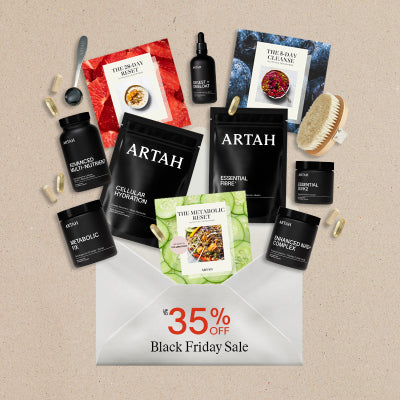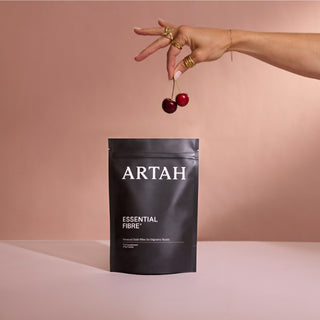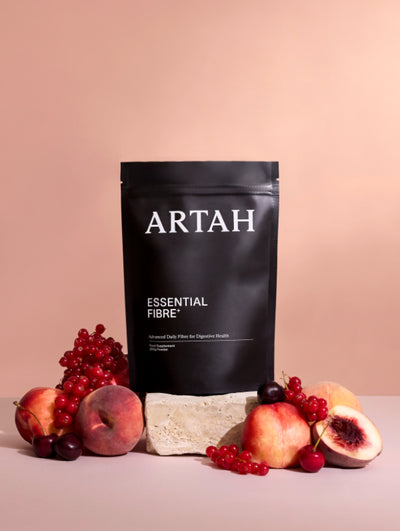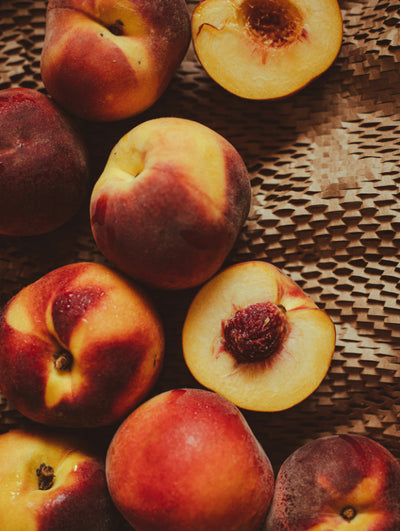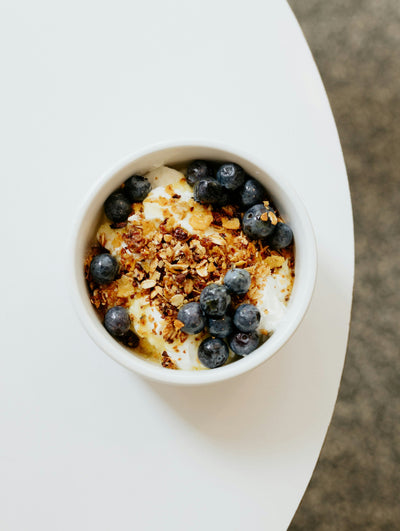Enjoying food is one of life’s great pleasures, and we’re often asked how to strike a balance between healthy and fun, or more often – if there even is one. There’s a difference between indulging and overindulging, and the truth is, the last thing we want is to return from holiday feeling terrible. So, we’ve pulled together some realistic tips for how to help you eat, move and feel healthier on holiday – without compromising on fun.
Ditch the anything goes mentality.
First and foremost, beware of the ‘anything goes’ mentality. One of the most common complaints I hear from people is returning from holiday feeling bloated, anxious and unwell. Not only is this the opposite of how we want to feel post-holiday, but it often triggers overly restrictive behaviour once you’re back at home. The good news is, you can still indulge and enjoy incredible food on holiday without going overboard. Embracing a more balanced approach is always the way to go; keep the foundation of your diet nutrient dense and enjoy local treats mindfully.
Keep your protein high.
When it comes to satiety, protein is the one to watch, so even if you’re indulging in more sugar, alcohol, or starchy foods, keeping your protein high can help you stay more satiated, prevent overeating and support healthy blood sugar levels. Whenever possible, get a good dose of protein in for breakfast; aim for around 20g to set you up for a more balanced day.
Re-order how you eat things.
If you’ve been following the latest bio-hacks for blood sugar balance, you’ve probably heard that the order in which we eat our food can have an enormous effect on our blood sugar. For example, eating vegetables before a starchy meal can help reduce postprandial blood sugar spikes by upwards of 25%. In English? Starting with veg means you’ll have better blood sugar control and will be less likely to crash, so, avoid the breadbasket and opt for a veggie starter (with or without protein).
Focus on foods that make you FEEL good.
Speaking of bread baskets, if you’re in a country that is known for incredible bread, like Italy, you need to do it at least once (after your veggies, of course). But these countries are also the most likely to be serving up a breadbasket at EVERY meal, and unless you’re consciously choosing when to indulge, it’s not uncommon to get through breadbaskets at breakfast, lunch and dinner on autopilot. Cue bloating, lethargy, sluggish bowel and a general feeling of blech; and that’s only one of the many daily food choices we have on holiday. It’s not about labelling food as good or bad, but instead, about choosing foods that will make you feel good. Focusing on how a food makes you feel will help you gauge whether it’s worth it or not. For example, if you know that sugar makes you anxious and bloated, but you’re somewhere with the most famous gelato in the world and you decide that the experience is worth the discomfort, then you can go for it and fully enjoy it in the moment. But, that doesn’t mean you need to eat it two times a day for the rest of your holiday. Too often, one indulgence leads to an ‘off the wagon’ mindset, which can easily spiral out of control. Again, it’s about having a more moderate approach; indulge when it’s worth it, but don’t go overboard.
Keep moving.
Even if you’d like a break from your normal workouts, walking is going to be one of the best ways to help your body cope with a sudden change in food and alcohol habits. Walking is prokinetic for the bowel, meaning it helps keep things moving. It’s also key for lymphatic drainage, mood, and overall blood sugar control. If you’re not on a holiday where you’re naturally walking or hiking more, try to get in at least 1 hour of brisk walking each day. This doesn’t need to be all at once; in fact, a brisk walk after meals is another great way to reduce a sharp rise in blood sugar and helps keep your blood sugar more balanced.
Take your key supplements with you.
If you have a regular supplement regime, you don't need to stop whilst on holiday. Having an all or nothing mindset is all too common - either I’m at home in a healthy routine, or I’m not – but it’s not the best for your health and wellbeing. Because holidays usually come with new foods, new sleep patterns and new microbe exposure, I always encourage people to take their probiotic with them. The last thing we want on holiday is digestive discomfort, so things like Digest + Debloat or G.I. Fix can help support you while your routine is different.
Have a plan for when you get back.
If you’ve indulged on holiday and are keen to feel great quickly, it’s important to have a plan to avoid panic restriction. Last week we shared our favourite pre-vacation detox, which gives you a simple way to feel better in 48 hours. This also makes a great post-vacation detox, so if you’re looking for a simple meal structure to follow to help you get back into the swing of things, it’s a great place to start. If you’re looking for something more comprehensive to help you reset after the summer, try The Metabolic Reset to help you get blood sugar and energy back in check.
This article is for educational purposes only and the implementation of the theories and practices discussed is at the sole discretion of the individual. All information given is not a substitute for medical advice, diagnosis, or treatment. If you have any concerns about your health, you should speak with your physician.








































